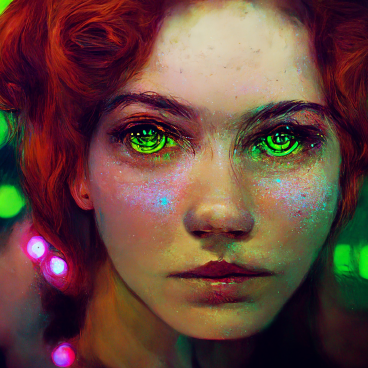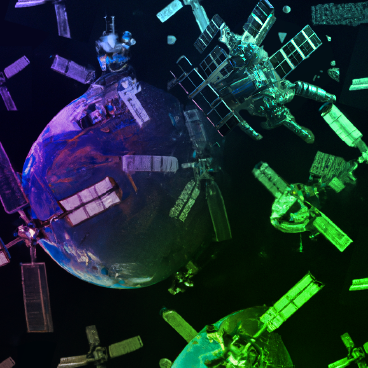

Screen Lock: Football Practice
Screen Lock: Football Practice
Alex is bored. Being a teenager in a civilization that has been forced to live and work during the night, excluded from the toxic post-apocalyptic outdoors, can be a drag. So one day, while playing VR football, he has an idea. A very bad idea.
Content warning: Death
Transcript
Alex was bored. He had woken early, about 5pm, and the apartment was still silent. Through the thin plaster wall, he could hear his sister Sophia gently snoring. It must be getting slightly cooler now, not that his sweating skin had noticed, but the air conditioning had switched itself off. Sitting on the sofa, he could hear whispered sounds from across the city.
A street or two distant, he listened to the slow crescendo and fade of a vehicle – probably a police curfew patrol, or else some emergency vehicle licensed to work during daytime hours. Somewhere nearby, the muffled hammering of a pneumatic drill suggested that his neighbors had started work early on their extension, adding another floor to their building to accommodate more of the – relatives? refugees? – who were flooding into the city from the south. Technically, this was a breach of curfew, but the authorities tended to turn a blind eye to smaller construction projects. The work needed to be done, and after all, there were already so many things to police.
Alex could see through the curtains that it was still bright outside. This gave him a familiar, almost pleasant, shudder of fear. He couldn’t remember the last time he’d been out in daylight. He crept quietly over to the storage unit that his mother used for work tools and gently opened it. Sure enough, inside, behind an old football, was all the kit anyone might need if they were caught on the wrong side of dawn or dusk – SPF 100 sunscreen, a separate tube of high UVA protection cream, wraparound polarized dark glasses, plus all sorts of specialist PPE.
Soon, night would fall, the moon might be dimly visible through the smog, and alarms would start ringing across the city’s bedrooms. Then the curfew siren would wail freedom, and people would emerge, washed, dressed and freshly caffeinated, into the dark to commence work and school. Alex too would join the flow of humanity out of their buildings and into what remained of society. He would wear his new school uniform, now with antiviral copper impregnation for greater infection protection, and his filter mask, while walking to the end of the road. When he got there, he would keycode in his PIN and gain access to the emergency shelter while waiting for the transport to take him to school.
In the shelter, he would meet his friends, Nic and Junior. There would be jokes and laughter, gentle jibes about who performed worst in their most recent gaming marathons. Eventually, the transport would arrive: a converted military vehicle with no windows, where you sat facing one another. After a magical mystery tour lasting about fifteen minutes, it would deposit them outside their school building, whose windows were all permanently shuttered. And then the day, by which Alex meant the night, would begin in earnest.
It was all so boring. Yet his parents kept reminding him how lucky he was to have a school to go to. After all, as Mama always told him, most kids his age didn’t get to go to a school at all anymore. They had to learn entirely online. Alex did like to see his friends, especially when they entered the screened-off central rooms of the school, where they could remove their PPE and greet one another, after undergoing the usual health scan. But it all felt so controlled and monitored, with the classroom drone constantly warning against touching, and the teacher admonishing anyone who took off their gloves or face mask even for a second.
And really, what was the point of it all? Dad said it was important to obtain knowledge, but why? If Alex needed to know anything, he could simply look it up online in seconds. Dad said he would need to pass his exams to get a job, but there were no jobs, or rather, the only jobs available seemed to be repairing drones or programming agri-bots, the kind of work his mother did. Even dad didn’t work anymore, and he was trained as a lawyer. Both his parents had sat him and Sophia down to warn them that they might have to start attending state education online.
Right now, the sky beyond the curtains was slowly dimming. Alex decided to play soccer while he waited for the daynight to begin. He booted up his console, logged into the immersenet, and chose to play a legends game. While the console chose avatars of great players from history to populate his match, he quickly donned his VR headset and haptic boots. Nic and Junior would get a notification that he’d opened a match, but they would still be asleep. This one wasn’t for statistics or bragging rights. He just wanted to occupy himself until breakfast.
The console chose Stamford Bridge as the location for the match, the old one in London rather than the new one that Chelsea had built in the Peak District. Alex wondered what Stamford Bridge looked like now, with its pitch submerged and its volcano-like exoskeleton peeking out above the muddy floodwaters. He didn’t recognize all the legend names in his match. Some of them were current players, like CR8, whose father also had been a great footballer in his day. Others he had heard his father talk about – Messi, Salah, Lewandowski. And then there were a few names he didn’t know, drawn from ancient history – Pele, Zidane, Beckham. Alex chose to play up front, as he always did, and set the difficulty level at 14, just a little higher than his own age. It was always good to test yourself, he thought.
After a sudden, disconcerting zoom from the dropdown menu, he found himself standing on the pitch in the center circle, about to pass the ball to someone called, according to their floating neon name sign, Diego Maradona. In his headphones, he heard the roar of a non-existent crowd and the sharp peep from a whistle. He passed the ball to Diego and began a gentle run into the opposition’s half.
Later that daynight, in school, Alex had an idea. It was, as Junior quickly identified, a very bad idea. Nevertheless, Nic liked it a lot and they made plans for that dawn. Junior didn’t want to take part. He felt it was dangerous, but he did promise not to say anything to anyone.
“But what about the drones?” Junior whined in his nasally voice. “You’ll be caught, Alex! You don’t have accreditation to be out.”
But Alex had an answer to everything: “My mum’s PPE has accreditation,” he said.
“But what if you are caught?” Junior continued. “You’ll get in trouble!”
Alex smiled. “Then we get in trouble. What can they do to us anyway? We’re too young to be sent to a detention cell.”
It was a little past sunrise when Alex met Nic at the main road, just as the sky was brightening up rapidly. He was nervous and beginning to wonder if his idea was a very bad one after all. Already, under his layers of PPE, he could feel the heat rising, and despite the wraparound shades, his eyes strained a little in the uncustomary light of day. They moved quickly through the empty streets toward the river. Occasional drones hovered overhead to scan them, but each one moved along quickly. When they reached the electric fence, Nic paused.
“Now what do we do?” he asked.
Alex, as usual, had an answer for everything.
“See there?” he pointed down the river to where an emaciated feral dog was sniffing the brown sludgy trickle. The creature was missing large patches of hair, and the pink, flaky skin revealed by the bald areas looked infected. “If he could get in, so can we.”
They decided to throw stones at sections of the fence to test it. After a couple of hundred meters, they found a malfunctioning section which didn’t buzz and spark when hit with a rock.
“This one,” said Alex authoritatively. He poked it with a stick to be sure, then lifted a curling corner of wire.
“Can you hold this while I squeeze through?” he asked Nic.
And then they were standing on the cracked, desiccated mud of the riverbed. Alex handed the ball to Nic.
“I’m gonna be Salah,” said Nic.
“Then I’ll be Maradona,” said Alex.
“Who’s that?” Nic asked.
“Never mind.”
Nic kicked off and soon they were running and laughing, sweating under their layers of PPE. They were playing for the Champions League. They didn’t notice the cloud of police drones gathering overhead. They didn’t even realize that the machines were powering up. Alex had only a moment to register shock, when Nic fell to the ground twitching and smoking.
Game over.
Written by Jim Clarke
Sound edited by Assaf Rapaport
Questions for reflection and discussion
The following questions can be used for a group activity (in a classroom or otherwise) or for personal reflection after listening to the episode.
- Do you play video games? If so, how much time do you spend playing them? Are they more or less fun than playing with people in the real world?
- Do you have friends who you only know online, either from videogames or social media? What is the difference between friendships online and in real life?
- Virtual reality is a simulated reality usually experienced through a VR headset. What could happen if people spent more and more time inside VR worlds?
- During Covid-19 pandemic, many students switched to online learning, and it is estimated that in the future the portion of learning done online will grow. In this story, most children don’t get to go to school anymore and learn entirely online. Would you prefer to learn online or by physically attending a school or college in person?
- Scientists estimate that a billion people will be affected by extreme heat stress if the climate crisis raises the global temperature by just 2 degrees celsius. How should the world deal with this? Do you feel your country is prepared for this scenario?
- Around one in ten working Americans go to work at night. Would you prefer to work at night or during the daytime? What are the pros and cons of working at night?
- According to the UN Refugee Agency, over 30 million people in 2021 were either refugees or asylum seekers. It is likely that this number will rise sharply as different regions experience climate disasters. What can the world do to address this?
- In many places today, nations are building walls along their borders to keep out refugees and economic migrants from elsewhere. Do you agree with this? Why, or why not?
- Drones are usually operated by people, using radio controllers. But some can be programmed to work by themselves. What do you think about the idea of drones which operate without human control? What useful purposes could they serve, and what are the dangers of such a thing?
- Some countries have also invented weapons which can work by themselves. Do you think this is a good or bad idea? Why?



